This event now concluded. Report available here.
- Date: Wednesday, October 14, 2015, 2:00-5:30 pm
- Venue: Iwasaki Koyata Memorial Hall, International House of Japan

- Organizers: International House of Japan,
Maureen & Mike Mansfield Foundation - Sponsored by Japan Foundation, MRA Foundation, Tokyo Club
- Supported by Asahi Shimbun
- Language: Japanese and English (with simultaneous interpretation)
- Admission: 1,000 yen (Students: 500 yen, IHJ Members: free)
Commemorating seventy years postwar this year, the International House of Japan and the Maureen and Mike Mansfield Foundation are co-organizing a series of four symposiums this year. This first symposium invites experts to discuss vital issues that have emerged in Chinese politics and society, including the relationship between China and Japan. The speakers will examine the significance of China in the modern world, not just in its political, economic and military aspects, but in its intellectual and cultural contexts, to better understand the main trends in China and the path for stable Japan-China relations.
【Speakers】
Jia Qingguo (Dean, School of International Studies, Peking University)
Takahara Akio (Professor of Contemporary Chinese Politics, The University of Tokyo Graduate School of Law and Politics)
【Panelists】
Frank Jannuzi (President/CEO, The Maureen and Mike Mansfield Foundation)
Yoshioka Keiko (Senior Staff Writer, Asahi Shimbun)
【Moderator】
Kawashima Shin (Professor, The University of Tokyo Graduate School of Arts and Sciences)
Report
The seminar started with addresses of 40 minutes each from the two keynote speakers. These were followed by 30 minutes of comments from the two panelists and moderator and a period of discussion among all five speakers. The moderator then wrapped up the program with concluding remarks. The following is a summary of the two keynote speakers’ addresses.
◆Keynote Speaker 1: Professor Jia Qingguo
The first of the two speakers, Professor Jia Qingguo from Peking University, offered an analysis of the contradictions and inconsistency in China’s foreign policy and spoke in some detail about the implications for Japan-China relations.
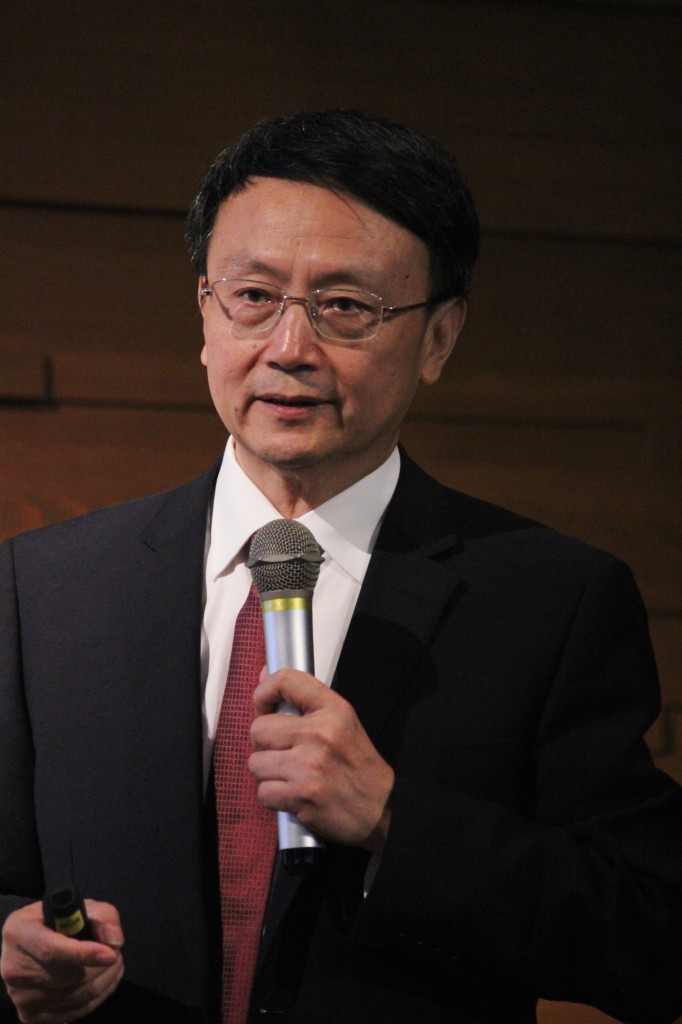 China in recent years has vowed to adhere to peaceful development, supported the authority of the United Nations, and insisted on dialogue and negotiations as the means to deal with international conflicts. At the same time, however, it has adopted policies that seem to be inconsistent with this position, such as its high-handed approach in the South China Sea and East China Sea and its blocking of international intervention in Syria at the UN. Professor Jia described four explanations often given for this inconsistency: (1) growth of China’s power and capabilities, (2) increased nationalism within China in reaction to foreign actions perceived as offensive, (3) rivalry among government institutions with differing views of China’s national interests, and (4) the emergence of new identities as China comes to view itself as a developed country and an international stakeholder.
China in recent years has vowed to adhere to peaceful development, supported the authority of the United Nations, and insisted on dialogue and negotiations as the means to deal with international conflicts. At the same time, however, it has adopted policies that seem to be inconsistent with this position, such as its high-handed approach in the South China Sea and East China Sea and its blocking of international intervention in Syria at the UN. Professor Jia described four explanations often given for this inconsistency: (1) growth of China’s power and capabilities, (2) increased nationalism within China in reaction to foreign actions perceived as offensive, (3) rivalry among government institutions with differing views of China’s national interests, and (4) the emergence of new identities as China comes to view itself as a developed country and an international stakeholder.
Professor Jia offered an alternative explanation: China has undergone major transformations since adopting its reform and open-door policy in 1978, and it is still in the process of growth. It thus has a number of opposing old/new identities. For example, it is both a developing country and a developed one, both a weak country and a strong one. He looked at these double identities in human psychological terms: Identity conflicts tend to be most severe during people’s adolescence, as they make the transition from childhood to adulthood. Since adolescents have both the identities and interests of children and those of adults, they are liable to behave unpredictably. Applying this to the social level, he explained that as organizations experience major transformations, they similarly hold conflicting old/new identities and are liable to experience identity crises. They have mutually contradictory interests, and so there are inconsistencies in their behavior. Professor Jia suggested that the lack of consistency in China’s foreign policy can be explained as the result of its being at an “adolescent” stage in its development, undergoing organizational transformations.
Professor Jia suggested that over time China is likely to see itself more as a developed country and a rich country and to seek interests aligned with these identities. Meanwhile, though, other countries are irritated at China’s foreign policy and may take measures to hedge against a potential China threat. Such actions may have a negative impact on China’s foreign policy and heighten the chances of conflict.
Looking at the outlook for Japan-China relations, Professor Jia declared that China is likely to continue sending mixed messages: seeking to build a community of common destiny with Japan but at the same time accusing Japan of being unwilling to face history and of pursuing rearmament to confront China. Meanwhile, however, recent moves like the relaxation of visa requirements for Chinese tourists have deepened the two countries’ economic interdependence and produced major benefits. So over the long run there is a possibility of better relations. And if Japan sticks to its pacifist policy and China comes to have a greater interest in global peace, stability, and prosperity, their ties should improve further. Professor Jia cautioned against focusing just on the disputes and expressed his hope that China and Japan will consider where their true interests lie and develop a constructive bilateral relationship.
◆Keynote Speaker 2: Professor Takahara Akio
International political scientist Nakanishi Hiroshi noted that historical research into World War I has focused too narrowly on events immediately prior to and following 1914. He highlighted the importance of reexamining the war’s root causes and the factors that could have changed the course of events from a longer time frame to make a proper assessment of the war and to gain a fuller understanding of human, particularly political, history.
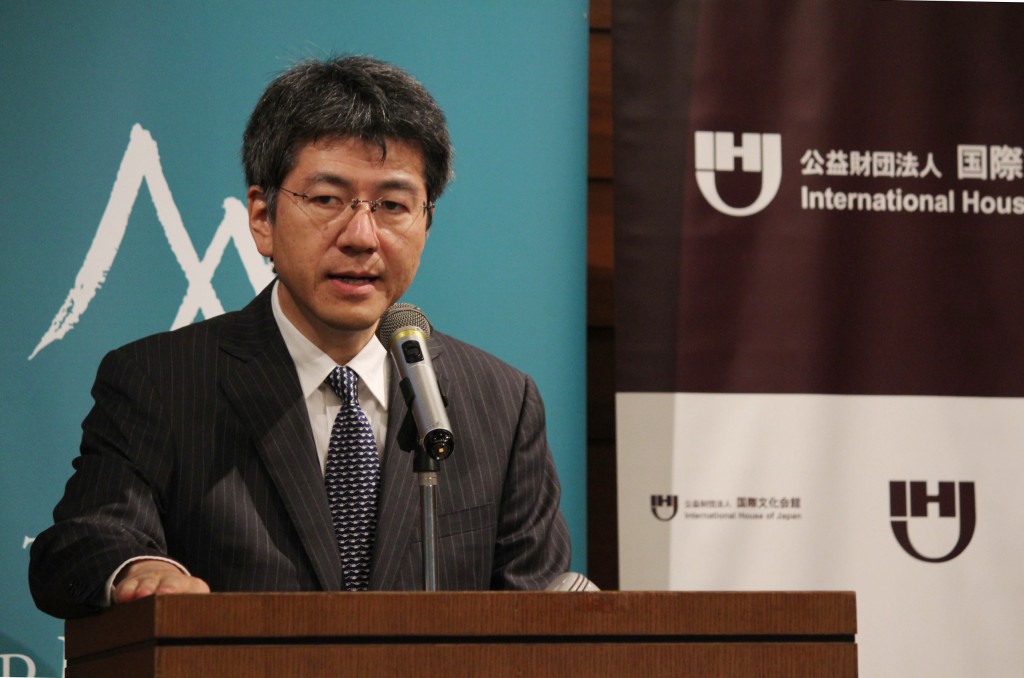 The second keynote speaker, Professor Takahara Akio from the University of Tokyo, noting the contents of Professor Jia’s address, pointed out that the processes of globalization and China’s development are affecting each other, and he discussed the background to the rise of nationalism in China and the way to build Japan-China relations in the future.
The second keynote speaker, Professor Takahara Akio from the University of Tokyo, noting the contents of Professor Jia’s address, pointed out that the processes of globalization and China’s development are affecting each other, and he discussed the background to the rise of nationalism in China and the way to build Japan-China relations in the future.
Professor Takahara declared that China has been pursuing a unilateral course, as seen in its activities in the East China Sea and South China Sea and in President Xi Jinping’s declaration, “While we pursue peaceful development, we will never relinquish our legitimate rights and interests, or allow China’s core interests to be undermined.” In his view, this reflects the rise of Chinese nationalism in response to the linked working of domestic politics and foreign policy. Under China’s one-party system, the Communist Party of China previously sought to maintain public acceptance of the legitimacy of its rule by pursuing economic development. But this became inadequate, and so the party came to rely on nationalism. Meanwhile, starting in 2007–8, during the administration of President Hu Jintao, a split of opinion surfaced in the CPC regarding the major issues of whether or not to pursue reforms and to recognize human rights as a universal value. The resort to nationalism was also directed at restoring party unity.
Professor Takahara next offered his ideas on how to build a new Japan-China relationship. Noting that the existing relationship includes both sturdy and fragile aspects, he called for the promotion of the former—including economic interdependence, non-traditional security, and environmental issues—and for the strengthening of cultural ties in such areas as the fine arts and anime, along with social interaction through nongovernmental organizations and the like.
Meanwhile, it will be necessary to manage and contain problems relating to the fragile aspects, such as differences over history and the Senkaku Islands issue. For both countries’ sake, it is essential for Japan not to succumb to physical provocations from China. There is considerable diversity of opinion within China. With respect to foreign policy issues, some favor the use of military force, but there are also internationalists and moderates who call for disputes to be settled in keeping with international law. Japan should seek to work together with those in the latter camp. And in view of China’s macroeconomic development, Japan should seek ways of tapping its economic power and cooperating to promote the further development of Asia. While it is important for Japan to heighten its deterrent power as a hedge against risks, there is a danger that this could lead to an arms race, so it is also essential to undertake defense cooperation with China and to involve the United States as well. Working together with other countries in the region, Japan should seek to build and maintain an order based on international law.
Professor Takahara went on to note that, while many people in China have mind-sets ensnared in the “rich country, strong army” paradigm, the issue is how to promote the sharing of international norms. Efforts are required to increase homestay arrangements for international students and opportunities for intellectual interaction through symposiums and the like. Both Japan and China must recognize and cope with the wide gap in historical perceptions resulting from lopsided information. Professor Takahara also referred to the importance of public diplomacy. Japan has been focusing on getting its message across internationally, but he stressed the need for serious efforts to convey Japanese sentiments and information directly to the Chinese. In closing, he spoke of the importance of improving history education, declaring that without efforts in this area by both countries, it will be difficult for today’s Japanese and Chinese children to join hands in building the future.
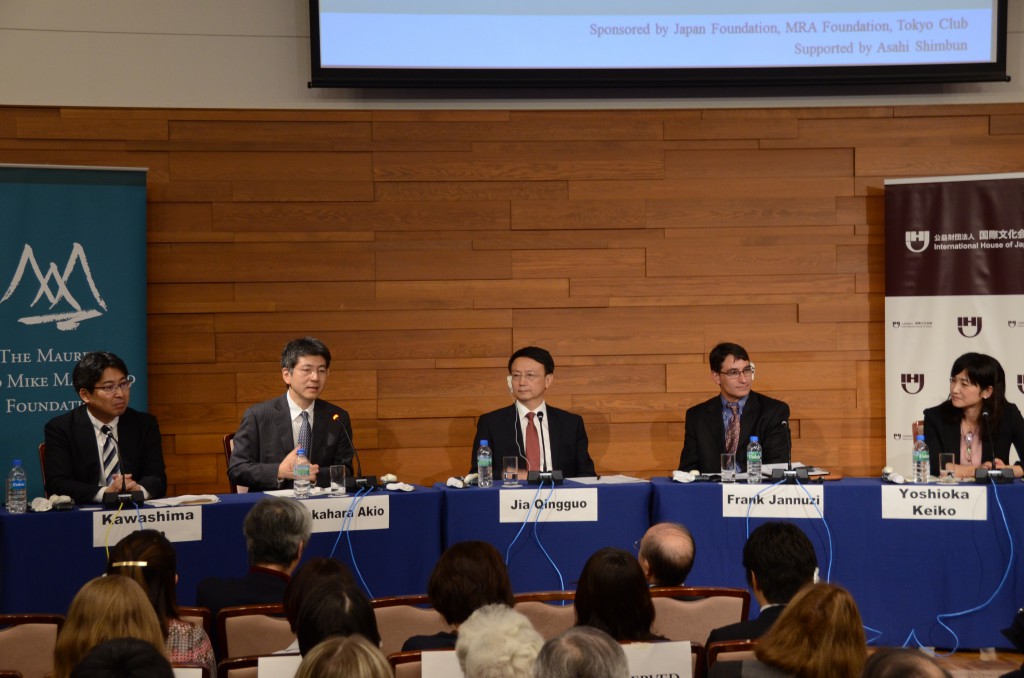
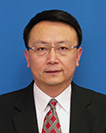 Professor Jia received his Ph.D. from Cornell University. His areas of expertise are U.S.-China relations, relations between the Chinese mainland and Taiwan, Chinese foreign policy and Chinese politics, and he has published extensively on these issues. Having taught at the University of Vermont, Cornell University, University of California at San Diego, and University of Sydney in Australia, Prof. Jia joined the School of International Studies of Peking University in 1996, where he currently serves as the Dean. He is also a member of the Standing Committee and the Foreign Affairs Committee of the National Committee of the Chinese People´s Political Consultative Conference and a member of the Standing Committee of the Central Committee of the China Democratic League. He is Vice President of the Chinese American Studies Association and a board member of the China National Taiwan Studies Association.
Professor Jia received his Ph.D. from Cornell University. His areas of expertise are U.S.-China relations, relations between the Chinese mainland and Taiwan, Chinese foreign policy and Chinese politics, and he has published extensively on these issues. Having taught at the University of Vermont, Cornell University, University of California at San Diego, and University of Sydney in Australia, Prof. Jia joined the School of International Studies of Peking University in 1996, where he currently serves as the Dean. He is also a member of the Standing Committee and the Foreign Affairs Committee of the National Committee of the Chinese People´s Political Consultative Conference and a member of the Standing Committee of the Central Committee of the China Democratic League. He is Vice President of the Chinese American Studies Association and a board member of the China National Taiwan Studies Association.
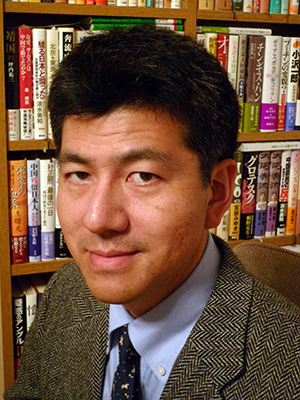 Professor Takahara received his DPhil from Sussex University in 1988. Before joining the University of Tokyo, he taught at J. F. Oberlin University and Rikkyo University. He has also held various posts in such places as the Japanese Embassy in Beijing, Harvard University, and Peking University, and served as President of the Japan Association for Asian Studies, and as the Secretary General of the New Japan-China Friendship 21st Century Committee. As a leading China expert in Japan, he has published many books on Japan-China relations, including The Politics of Wage Policy in Post-Revolutionary China (Macmillan, 1992) and To the Era of Developmentalism, 1972-2014, Series on China´s Modern History, Volume 5 (Iwanami Shoten, 2014, co-author, in Japanese).
Professor Takahara received his DPhil from Sussex University in 1988. Before joining the University of Tokyo, he taught at J. F. Oberlin University and Rikkyo University. He has also held various posts in such places as the Japanese Embassy in Beijing, Harvard University, and Peking University, and served as President of the Japan Association for Asian Studies, and as the Secretary General of the New Japan-China Friendship 21st Century Committee. As a leading China expert in Japan, he has published many books on Japan-China relations, including The Politics of Wage Policy in Post-Revolutionary China (Macmillan, 1992) and To the Era of Developmentalism, 1972-2014, Series on China´s Modern History, Volume 5 (Iwanami Shoten, 2014, co-author, in Japanese).
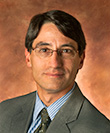 Mr. Jannuzi joined the Mansfield Foundation in 2014. He previously served as Deputy Executive Director at Amnesty International. From 1997-2012, he was Policy Director, East Asian and Pacific Affairs, for the U.S. Senate Foreign Relations Committee. During his tenure with the Foreign Relations Committee Mr. Jannuzi also was a Hitachi Fellow of the Council on Foreign Relations from 2006-2007, serving as a visiting lecturer at Keio University and a visiting scholar at the Institute of International Policy Studies in Tokyo. He earned a BA from Yale University and an MPP from the John F. Kennedy School of Government, Harvard University.
Mr. Jannuzi joined the Mansfield Foundation in 2014. He previously served as Deputy Executive Director at Amnesty International. From 1997-2012, he was Policy Director, East Asian and Pacific Affairs, for the U.S. Senate Foreign Relations Committee. During his tenure with the Foreign Relations Committee Mr. Jannuzi also was a Hitachi Fellow of the Council on Foreign Relations from 2006-2007, serving as a visiting lecturer at Keio University and a visiting scholar at the Institute of International Policy Studies in Tokyo. He earned a BA from Yale University and an MPP from the John F. Kennedy School of Government, Harvard University.
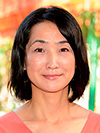 Ms. Yoshioka was born in 1964. After graduating from the faculty of law at Okayama University, she worked at Sanyo Broadcasting Co., Ltd. as an announcer. In 1989, she joined The Asahi Shimbun in Wakayama, Osaka and Tokyo. Afterwards, until the spring of 2013, she served as a correspondent for about 7 years in Beijing and Shanghai in China. One year from the summer of 1999, she studied language at the University of International Business and Economics in Beijing. From September of 2007, she was a guest researcher at the Center for Strategic and International Studies (CSIS) for a year. Her writings include Aikoku Keizai (Asahi Shimbun, 2008) and Mondo Muyo (Iwanami Shoten, 2013).
Ms. Yoshioka was born in 1964. After graduating from the faculty of law at Okayama University, she worked at Sanyo Broadcasting Co., Ltd. as an announcer. In 1989, she joined The Asahi Shimbun in Wakayama, Osaka and Tokyo. Afterwards, until the spring of 2013, she served as a correspondent for about 7 years in Beijing and Shanghai in China. One year from the summer of 1999, she studied language at the University of International Business and Economics in Beijing. From September of 2007, she was a guest researcher at the Center for Strategic and International Studies (CSIS) for a year. Her writings include Aikoku Keizai (Asahi Shimbun, 2008) and Mondo Muyo (Iwanami Shoten, 2013).
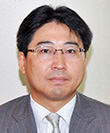 Professor Kawashima received his Ph.D. in literature at the University of Tokyo Graduate School of Humanities and Sociology. His areas of expertise are Chinese/Taiwanese diplomatic history and contemporary international relations in East Asia. Previously an Associate Professor at Hokkaido University, he joined the University of Tokyo Graduate School of Arts and Sciences in 2006, where he currently teaches as a Professor. His other posts include Senior Fellow at the Institute for International Policy Studies and Editor in Chief of nippon.com. He has engaged in research and education in Taiwan, China and the US. His major publications include The Formation of Chinese Modern Diplomacy (Nagoya University Press, 2004) and Modern History of Japan-China Relations (Yuhikaku Publishing, 2013).
Professor Kawashima received his Ph.D. in literature at the University of Tokyo Graduate School of Humanities and Sociology. His areas of expertise are Chinese/Taiwanese diplomatic history and contemporary international relations in East Asia. Previously an Associate Professor at Hokkaido University, he joined the University of Tokyo Graduate School of Arts and Sciences in 2006, where he currently teaches as a Professor. His other posts include Senior Fellow at the Institute for International Policy Studies and Editor in Chief of nippon.com. He has engaged in research and education in Taiwan, China and the US. His major publications include The Formation of Chinese Modern Diplomacy (Nagoya University Press, 2004) and Modern History of Japan-China Relations (Yuhikaku Publishing, 2013).